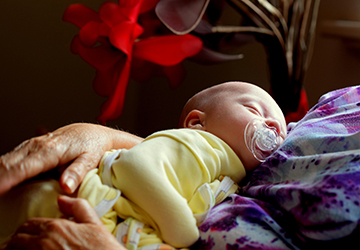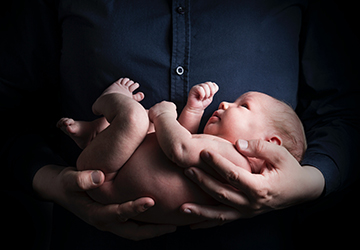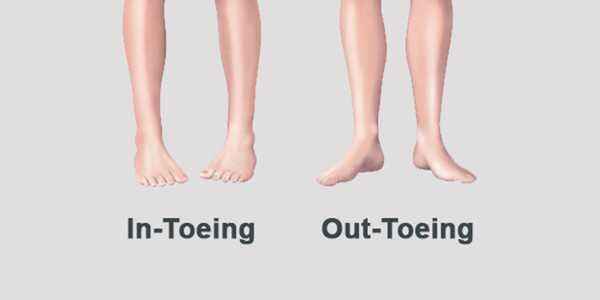Health issues among infants during the first few weeks of birth are common. Awareness about these issues and the remedies that come with them is essential for a parent. If you are a first-time parent wanting to know about these issues and cures, you have landed at the right place.
Health issues among infants during the first few weeks of birth are common. Awareness about these issues and the remedies that come with them is essential for a parent. If you are a first-time parent wanting to know about these issues and cures, you have landed at the right place.
Infancy is delicate, so it must be dealt with carefully. This article provides parents with all the basic knowledge to deal with these common health problems among infants. If any issues mentioned below are visible in your baby, you must try the remedies in this article. Unfortunately, if none of these remedies ease your newborn, consult a neonatologist.

Infant Health Issues and Ways to Cure Them
Here are some of the infant health issues you should know about:
1.Diaper Rash
Diaper rash can be caused by exposure to stool or urine. It can also happen if a wet or dirty diaper is left on for too long. To deal with the rash, make sure to change the diapers frequently. Moreover, it is also essential to care for the baby's hygiene. Wash that area with warm water and soap, and let it dry. Tie the diaper loosely so that the diaper area will be exposed to the air as much as possible. Put on a rash cream to cure the rash, but seek professional advice if it doesn't get better.
2.Colic
According to a study, one-fifth of infants suffer from colic. Babies are usually fussy in the evenings, but some cry inconsolably, and nothing pleases them. This might be due to colic. They scream when they cry, stretch their legs upwards, and pass gas. It can begin at the start of the 2nd or the 4th week. It often stops after three to four months.
Until today, there is no exact reason for colic, as satisfying the baby is very challenging. To avoid or cure colic, breastfeeding mothers should change their diet or the brand of formula milk they use. Otherwise, rocking and comforting the baby can be tried. However, it is also essential to consult a doctor in matters of colic.
3.Care of Umbilical Cord
The umbilical cord provides oxygen and nutrients to the fetus in the womb. When the baby is delivered, it is cut, and the rest of the part is supposed to fall off in 10 days. It then forms a navel, also called a belly button.
The area should be kept dry and exposed to air until the umbilical cord falls off. It should be cleaned gently with a wipe. If there is any pus or redness around that area, immediately consult a doctor.
4.Fever
Newborn babies are very delicate and can get sick very quickly. The first few months, they should be handled cautiously. Touch them with clean hands, and don't let everyone touch them during the first few months, as their immunity is not as strong. Infants' temperature is usually higher than older children, so it's normal. However, a doctor should be immediately consulted if it's above 100 degrees Fahrenheit. The doctor will confirm if there is some severe disease or not.
5.Teething Discomfort
The baby's teeth start to grow after six months of birth, lasting until 2-3 years. The first four front teeth of the baby begin to grow at a very early age. It can cause discomfort and pain to the little one. You can use teething toys or ice to reduce gum swelling and pain. Moreover, distracting the baby by playing with them can help avoid the pain. There is the possibility that while teething, the baby can get a fever or diarrhea. If this is the case, visit a doctor.

6.Gas and Digestive Issues
It's normal for babies to face gas and digestive issues initially. Make sure to help the baby burp after every breastfed and give them a tummy massage in circular motions. Avoid overfeeding the baby, and be very careful with the feeding positions. All this will help the baby with gas pains. If the gas and digestive problems aren't improving, give the baby over-the-counter drops recommended by a doctor.
7.Spitting
Spitting in babies is common. Most babies spit after breastfeeding, and it's not concerning. Yet, to avoid a lot of spitting, handle the baby gently and help them burb. Watch videos to learn how to make the baby burp.
After breastfeeding, hold the baby in an upright position for 10-20 minutes. If you are using formula milk, see if the size of the nipple is appropriate and that you don't overfeed the baby. All this might help with the spitting problem.
On the other hand, if the baby is vomiting, you should consult a doctor to rule out any serious issues.
8.Breathing Patterns
Babies tend to take deep breaths or gasps, and it's okay. The baby sometimes pauses breathing for a few seconds and then takes a few rapid breaths. None of this is worrying unless the baby turns blue or stops breathing for longer than 15 seconds. If breathing is severely difficulty, you must rush to the hospital.
9.Urination
Infants urinate every few hours. If the baby stops urinating frequently and seems distressed while passing the urine, immediate medical attention is required. A high possibility of urinary tract infection can cause the infant discomfort and pain, which is why it must be treated professionally.
To avoid urine infections, keep your baby hydrated.
10.Jaundice
Signs of Jaundice in infants can turn the skin, eyes, and mouth color into yellow. Jaundice is common among infants as their liver properly starts functioning after a few days of birth. The body produces a substance called Bilirubin that the liver removes. Since the liver doesn't remove Bilirubin in the first few days, it causes Jaundice.
As soon as the liver starts working entirely, it removes the Bilirubin on its own, and the Jaundice heals after a little while. Sometimes, Jaundice doesn't heal independently, so phototherapy is used. It's a treatment in which a unique lamp breaks down Bilirubin in the body.
Conclusion
To summarize, all parents must be very well aware to act accordingly. These regular issues are usually manageable, but a healthcare provider can be consulted anytime.


